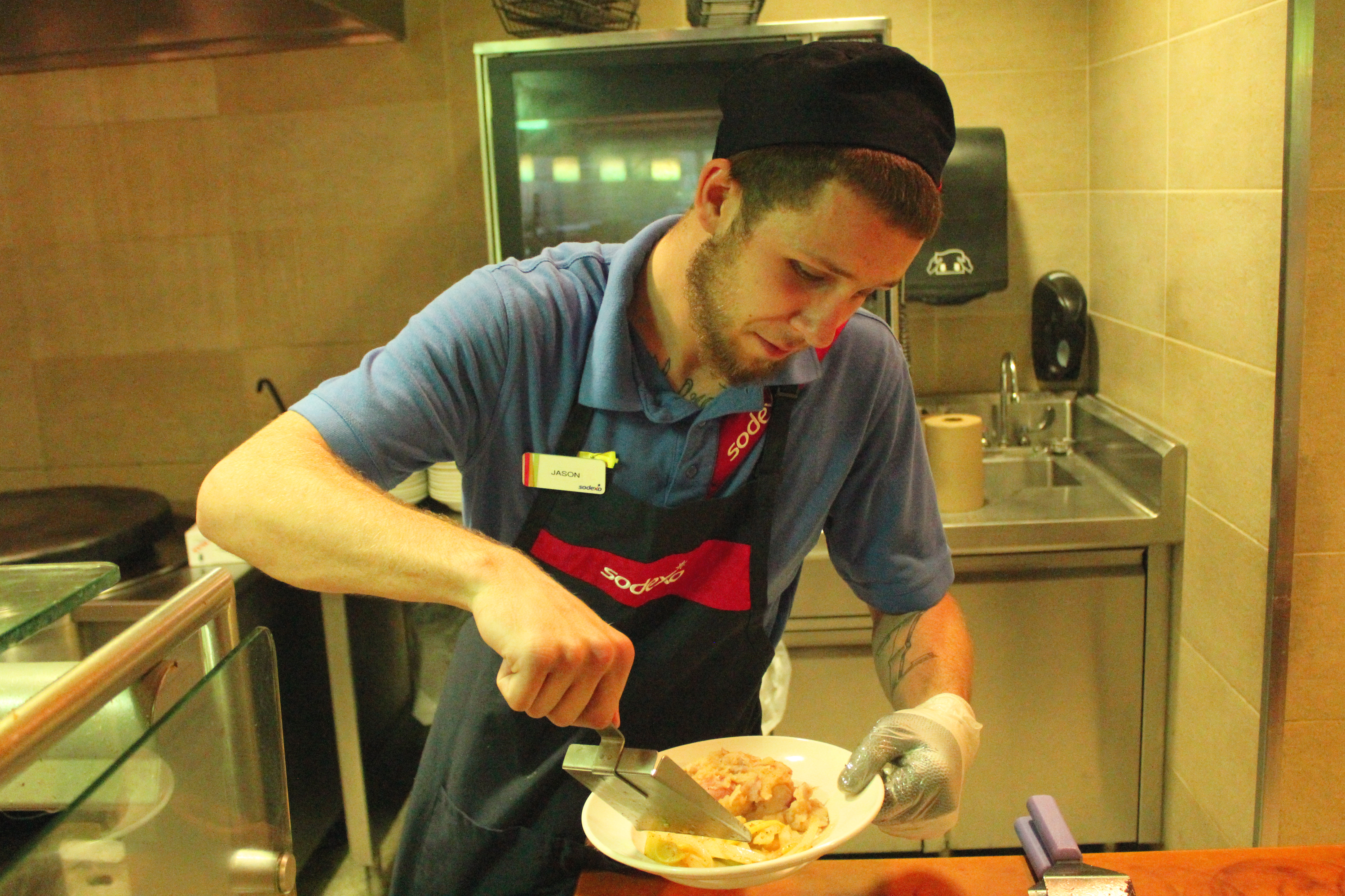As we learned in Food Politics, Political Food, we are all related through the processes in which food is picked, processed, and prepared into the meals on our tables, the snacks in our cupboards, and the food we go out to eat in our favorite restaurants. If we're all related in some fashion, what kind of people are we in relation to how we treat people in food service?

In our society, people in food service are many times overlooked, invisible members of our world who provide us the essence of life in a very real sense.
This past semester, I worked in the dish room of the dining hall for Sodexo. Many people who have worked in dish rooms in the past warned me about how awful it would be, and basically told me to try for a less strenuous position. I decided after reading the eye-opening Nickel and Dimed (which everyone should read!), I wanted to get as much insight as possible into the lives of those who do the jobs most of society would turn up their noses to or simply ignore. I wanted to be a dishwasher. As I quickly learned, washing dishes in a commercial college kitchen is nothing to sneeze at-with two or three people in the dish room, cleaning, sorting, and putting away all of the dishes used to eat off of, serve out of, and cook with is no easy task. Yet my supervisor could do so seemingly effortlessly, whipping about the dish room and kitchen like nobody's business. After ten to twelve hour shifts (mine were shorter, usually from five to seven hours), she still rarely complained and was the most efficient person I have ever worked with.

However, whenever I was out in the dining hall, or even on my break, I was invisible to the rest of the world (Sodexo staff being the exception.) Even people that would regularly say something to me acted as though they could not see me when I was in my (usually kind of gross) uniform. This is not a pity party, and a few of my friends treated me just the same as normal, but the point still stands: why are we making people in food service invisible? Are they not just as human as we are?
This phenomenon is obviously unsettling, and I think we as informed, responsible consumers in our societies should work to change it. So the next time you're eating out, maybe be a little bit nicer to your waitress, or hostess, or person putting up the dishes. Just some food for thought.
This is truly a problem, and I feel terrible whenever I see it happen. I think there is definitely an us-them mentality when people go into a restaurant to eat. I have seen folks treat even their servers with hostility, and have heard horror stories about what some people leave for tips--i.e., mean messages, nothing at all, or, even worse, just a handful of spare change.
ReplyDeleteAs to your reference to Nickel and Dimed, I agree that it is a wonderful piece of writing. I especially like her reference to "visible Christians" who go out to eat and do not leave any tip or any thanks while expecting their dining experience to be measured out to their every whim. As a Christian myself, I find this absolutely appalling, but it goes beyond what one should or shouldn't do as a Christian and instead goes right into the heart of how one should behave as a decent human being.
Workers in the food service industry play such an important role in today's society, but they also get such a short end of the stick, and this is certainly a problem that needs to be addressed.
This is a great point that you bring up. Not many people ever think about the food work that goes into making their food. They just want the end result and they never see beyond the plate. I am guilty of this also, because I never see beyond the waiting staff. Until you brought awareness to this, I never even considered who else helps prepare the meals that we are served. We live in such a self satisfying world that we don't care about what or who creates our meals except what is in front of us. Bringing awareness to this is makes those that seem invisible more visible to the public.
ReplyDelete